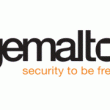

Smart Farming has become the main trend in Agriculture sector. According to the FAO by 2050 food production may increase a 70% to feed 9.6 billion people. (more…)
December 12, 2016
Posted by: Avadhoot Patil

Gemalto, a provider of digital security, has entered into a Memorandum of Understanding (MoU) with Huawei, a global ICT solution provider, to deliver the global Internet of Things (IoT) vision of both parties at Huawei Connect, Europe 2016. (more…)
November 28, 2016
Posted by: Avadhoot Patil
u-blox, a global provider of wireless and positioning modules and chips, has announced its technology is powering a new smart bus solution from Baoruh Electronic in Taiwan which combines LTE-based telematics and Automated Fare Collection (AFC) for intelligent fleet management. (more…)
November 23, 2016
Posted by: Avadhoot Patil

The recent Beecham Research study, Smart Home Report 2016: Current Status, Consumption Trends and Future Directions, has explored current business models being adopted in the smart home market. (more…)
November 9, 2016
Posted by: Avadhoot Patil

JT, a full-service Tier-1 global consumer and business enterprise provider, has partnered with Internet of Things (IoT) provider NeoConsult. (more…)
November 2, 2016
Posted by: Avadhoot Patil

Eurotech, a provider of Machine-to-Machine (M2M) platforms and Internet of Things (IoT) solutions, has announced the availability of the first code contribution for Eclipse Kapua, in collaboration with Red Hat, a provider of open source solutions. (more…)
October 24, 2016
Posted by: Avadhoot Patil

Synapse Wireless, an (IoT) providing software, hardware, and networking solutions to develop, deploy, and manage the “Things” in IoT, announced that Johnny Thorington has been appointed as the company’s chief technology officer (CTO). (more…)
October 17, 2016
Posted by: Avadhoot Patil

Essence, a provider of IoT, cloud-based connected living solutions, has expanded its Smart Living platform, WeR@Home™ by adding IFTTT capabilities and Z-Wave+ certification to meet the significant increase in demand for smart home devices. (more…)
October 11, 2016
Posted by: Avadhoot Patil

The British manufacturing industry is experiencing a seismic shift in priorities, with digital transformation shaking up traditional working models and processes, writes Damian Hennessey, the commercial director at Proto Labs. (more…)
September 21, 2016
Posted by: George Malim

In July Actility, a provider of low power wide area (LPWA) networking and the company behind the ThingPark LPWA IoT platform, launched the ‘ThingPark Approved’ programme. Actility also welcomed the first partners to achieve ThingPark Approved status. (more…)
September 1, 2016
Posted by: Avadhoot Patil